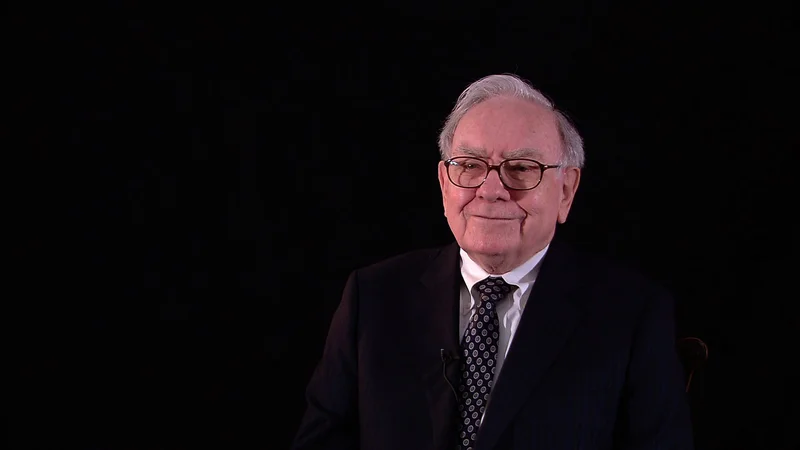Article Directory
It’s one of those moments in business history that I wish I could have been a fly on the wall for. Sometime around 2009, two titans, operating on entirely different planes of genius, get on the phone. In one corner, you have Warren Buffett, the Oracle of Omaha, the man who mastered the game of value and capital allocation better than anyone, ever. In the other, Steve Jobs, the mercurial visionary who didn't just play the game—he fundamentally redesigned the board.
The subject of the call was simple: Apple was sitting on a mountain of cash, "many, many, many, many billions," as Buffett put it. And Jobs, in a rare moment of outreach, wanted to know what the master of money thought he should do with it.
Buffett, ever the pragmatist, laid out the logical options. Dividends? Acquisitions? Or his preferred choice, given the circumstances: stock buybacks. This is standard corporate finance, really—in simpler terms, it's a company using its own cash to buy its own shares off the market, making everyone else's slice of the pie a little bigger. Jobs even agreed with the core premise. He told Buffett he absolutely believed Apple’s stock, then trading for a measly $7.40 a share, was significantly undervalued.
Buffett’s advice was mathematically flawless. "What better can you do with your money?" he asked. And yet, Jobs did nothing. He just let the cash sit there. On the surface, it looks like a colossal error, a multi-trillion-dollar opportunity missed. But I don’t think this was a mistake. I think it was a message.
A War Chest for the Impossible
To understand Jobs’s decision, you have to understand that he and Buffett, while both geniuses, were speaking different languages. Buffett speaks the language of value, of optimizing the present. He saw a dollar and asked, "How can I turn this into a dollar-fifty?" It’s a brilliant and powerful worldview that has built empires.
But Jobs spoke the language of creation, of inventing the future. He saw a dollar and asked, "How can this dollar help me build something that doesn't exist yet?" The cash wasn't an asset to be optimized for shareholder return; it was a war chest. It was the fuel for the next paradigm shift. It was the freedom to pour billions into a secret project like the iPad, to build massive data centers, to secure the global supply chain for the iPhone—all without ever having to ask a board or a bank for permission.

Buffett was offering Jobs a perfect lesson in how to tend a beautiful, profitable garden. But Jobs wasn't a gardener; he was trying to terraform Mars. The rules are different when your goal is that audacious. He needed liquidity not to weather a downturn, as the Harvard Business Review might suggest, but to fund a revolution.
When I first read Steve Jobs didn’t take Warren Buffett’s financial advice to buy back Apple stock, and it says a lot about his leadership style, I felt a jolt of recognition. This is the classic disconnect between optimization and creation. We see it everywhere. The people who manage existing systems are rewarded for efficiency and predictable returns. But the people who build the next systems? They are often seen as reckless, stubborn, or, as former colleagues described Jobs, "demanding, acerbic, and imperious." These aren't just personality quirks; they might be the necessary traits for someone whose job is to bend reality to their will.
The Two Logics of Leadership
This story reveals the fundamental tension at the heart of any groundbreaking enterprise. Do you serve the machine as it exists today, or do you hoard resources to build a new one? Buffett’s logic is unassailable if your goal is to maximize the value of what you currently have. His caution around buybacks—only doing them when the price is a bargain—is a testament to his discipline. He plays the long game of accumulation with near-perfect precision.
But Jobs was playing a different game entirely. His timeline wasn't quarterly earnings; it was the next decade. His key performance indicator wasn't earnings per share; it was whether he could put a "ding in the universe." It’s this relentless focus on the next horizon that separated him from almost everyone else—it was a deep, almost cellular understanding that the rules of today's financial game were utterly irrelevant if you were busy building the stadium for tomorrow's.
Think about it. What if he had spent those billions buying back stock? The share price would have ticked up. A few investors would have been happier. But would Apple have had the unshakeable financial foundation to take the monumental risks that led to the Apple Watch, the M-series chips, and its push into services? Would a company more beholden to short-term market sentiment have had the courage to kill the headphone jack? We’ll never know for sure, but Jobs’s instincts tell a powerful story. He "just liked having the cash," Buffett said. That wasn't a quirk; it was a strategy.
The Currency of Vision
In the end, this isn't a story about a bad financial decision. It's a profound lesson in leadership. The greatest financial minds can teach you how to multiply your money. But they can't always teach you how to multiply your impact. Steve Jobs understood that the most valuable asset he had wasn't the stock price; it was the unfettered ability to pursue his vision. That cash pile wasn't just money. It was independence. It was security. It was the currency of creation, and for a man like Jobs, that was the only currency that truly mattered.
